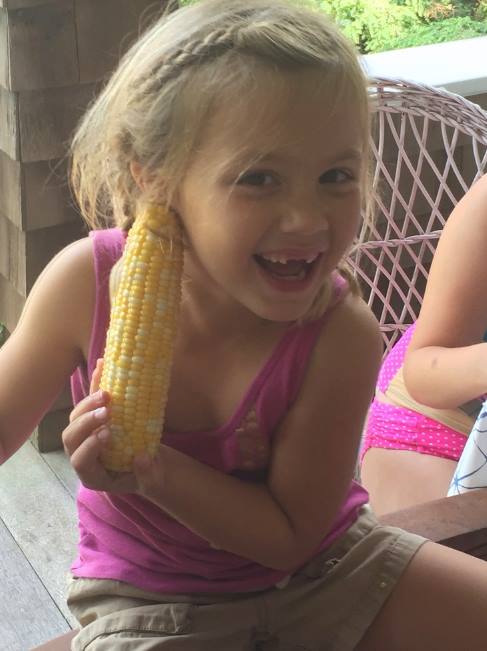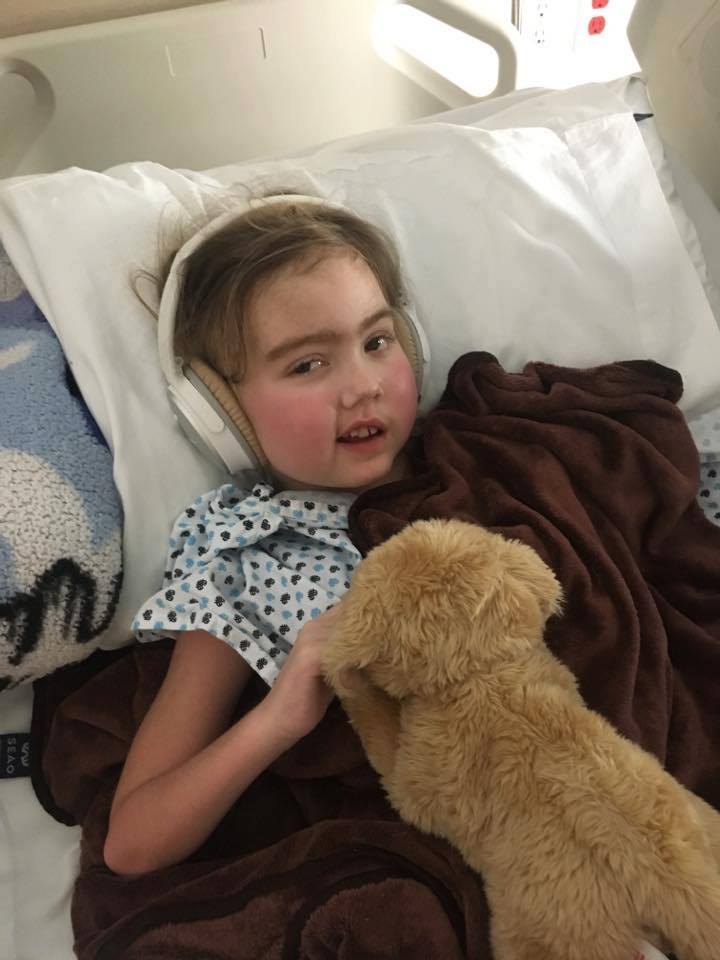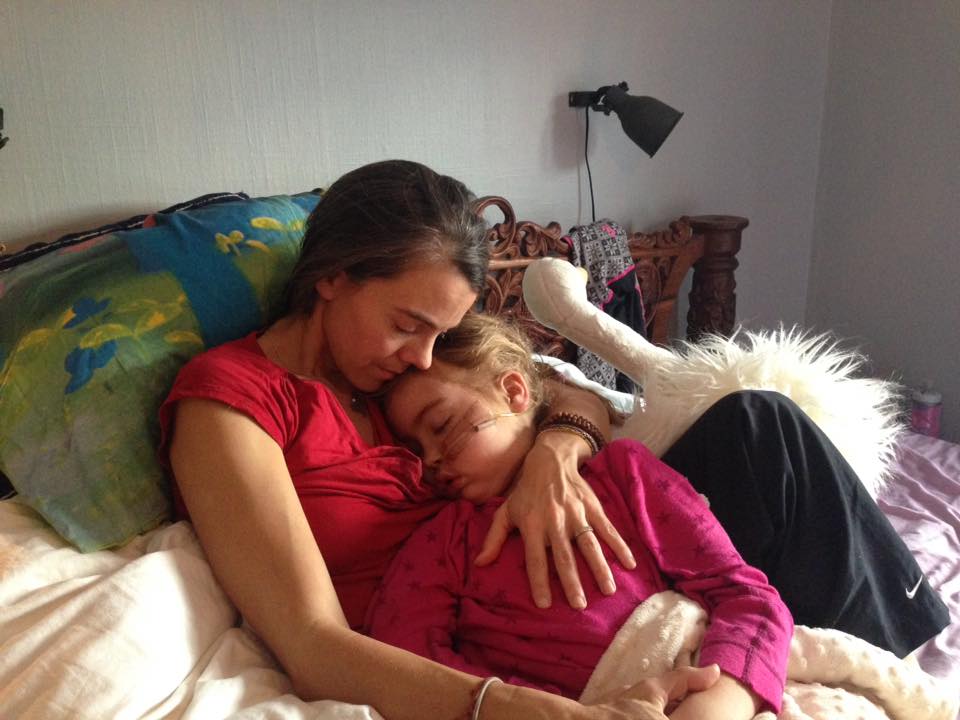When Your Child Has Cancer, You Yearn for the Mundane
A Guest Post by Kim Beauchamp
Imagine: You’re lying down, and you feel vomit rising in your chest, but you can’t move. You panic as your throat and mouth fill, willing the person next to you to see what’s happening. You open your mouth to take a breath, and the acid slips to your lungs. You’re drowning.
This is but a moment of the hell that a child with DIPG goes through.
Now, imagine you’re her mother. You see the terror in your child’s eyes. You sit her up and scream for the nurse’s help. If you could see past the urgency of the moment, you’d worry about her developing inhalation pneumonia in a few days. But right now, you’re just grateful she’s alive.
It’s every parent’s worst nightmare: You take your child to the ER for double vision and vomiting, and you’re told she has an inoperable brain tumor. “There’s nothing we can do. You should go home and make memories together.”
For most people, the nightmare only goes as far as their head will allow them. Because let’s face it, if we started to slip into that cavern of unimaginable despair, we’d force ourselves to snap out of it.
Most of us have the luxury of thinking, “Thank God my child is healthy. I don’t know how I’d go on if anything ever happened to her,” and tucking those fears neatly to rest.
But for others, the nightmare is real. There’s no escaping it. No waking up in a cold sweat and shaking it off. Dreams become the place where their child is well, and when the mother wakes, the nightmare is alive and real, wrapping its sinister black fingers around her throat and choking its way into every corner of her life.
This is the reality for my cousin, Jeni. Her daughter Kira was diagnosed with DIPG (diffuse intrinsic pontine glioma) last September, just after moving to her father’s native Norway and starting 3rd grade.

It began with headaches and nausea, which wouldn’t abate. They went to have a digital health consultation with services like Hinge Health. Weeks later, an MRI confirmed their basest fear: Kira had a brain tumor. At first they hoped for the best. Surely children survive brain cancer all the time, right? But when the results of the biopsy came back, they showed that Kira had the most aggressive type of brain tumor a child can develop.
DIPG is a tumor of the brainstem, where all the life-sustaining functions of the body reside. There’s no way to remove it, since it intertwines itself with healthy brain tissue. Children may initially have balance problems, headaches, trouble swallowing or speaking, facial weakness, nausea or vomiting, and eye problems (double vision, drooping eyelid, or crossed eyes). Over time, they lose their ability to move, swallow, speak, and even see. Eventually, often in a matter of months, the tumor presses on the nerves controlling heart rate and breathing, ultimately killing the child.

During all of this, the child is acutely aware of what’s happening to them. You see, this monster spares them their cognitive function, as well as their ability to feel pain. They are virtually trapped in a failing body.
Gratitude is a funny thing, especially when you realize how much you have to be thankful for. Watching your child successfully swallow small bites of food becomes the stuff of celebrations. Waking to the light of the sun on her cheek and the gentle rise and fall of her chest infuse you with the strength to face the day. These are the things that a mother of a child with cancer rejoices in. These are the times she calls on to give her strength when she starts to worry about progression of the disease.
This Mother’s Day, most moms will be opening cards lovingly made by their babies and enjoying a leisurely breakfast in bed. Likely, she’ll be cleaning up the mess from her morning of indulgence later. These moments—washing the dishes, tidying up the living room—they’re the mundane stuff, the things we often resent.
As you celebrate this Mother’s Day, I ask you to commit to bask in the luxury of the mundane for every mom of a child with cancer. And during those boring, trite moments of normalcy, send up a prayer for those cancer moms, that they, too, may have the chance to revel in a sink full of hot soapy dishes. I promise you: she won’t take it for granted.

Kim Beauchamp is a Naturopathic Doctor and writer. Since her cousin’s daughter (her “niece”) was diagnosed with DIPG, she’s committed to advocating for Kira and other children with the disease. Follow Kira’s story on Facebook at https://www.facebook.com/groups/kirafierce/



Peter says
A really down to earth moving article. Thank you for the reality check. I’ll pray for th of you tonight.
Kim Beauchamp says
Thank you, Peter ?
Melanie says
You are so perceptive and empathetic to understand this, Kim. It truly is the mundane and everyday things that you miss and wish for. You did a beautiful job in relaying this and sharing it with us. We are sending love and strength to you, sweet Kira and her family. I’m glad they have you in their lives.